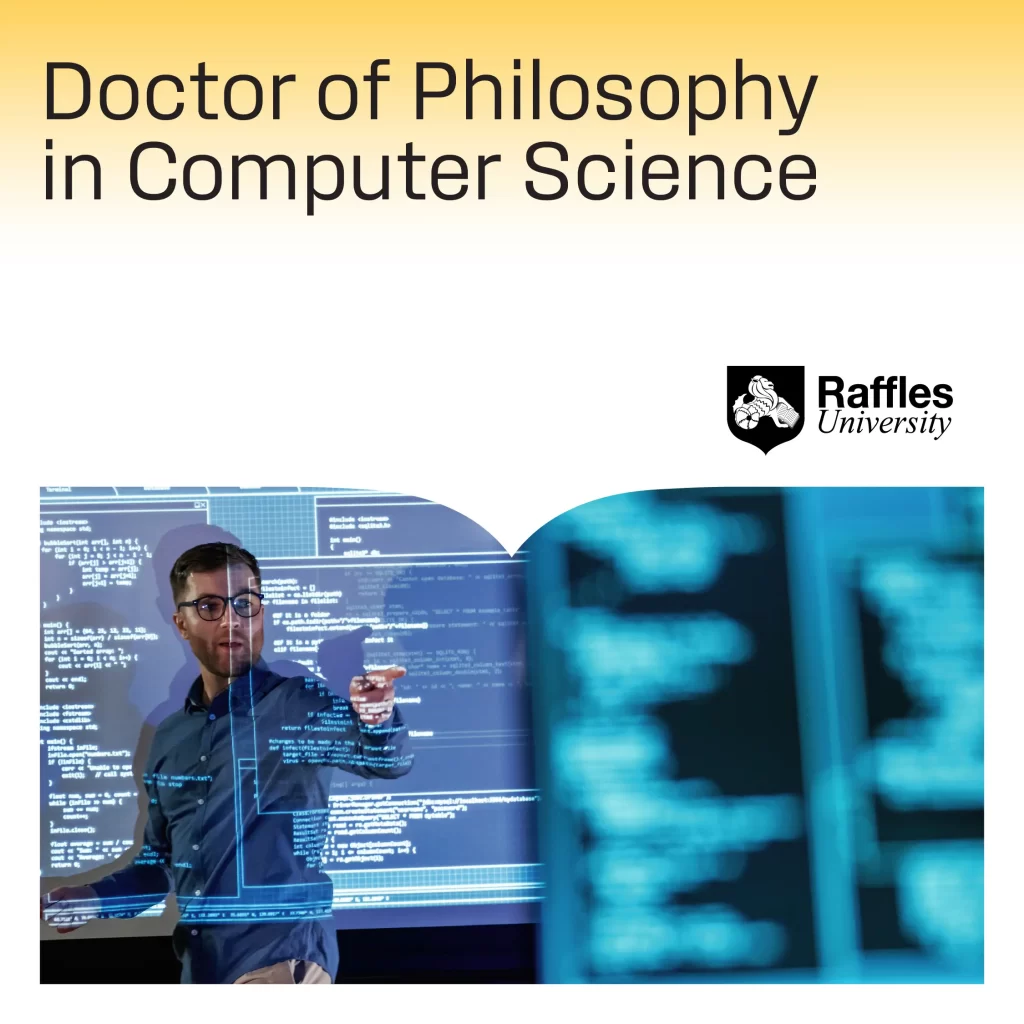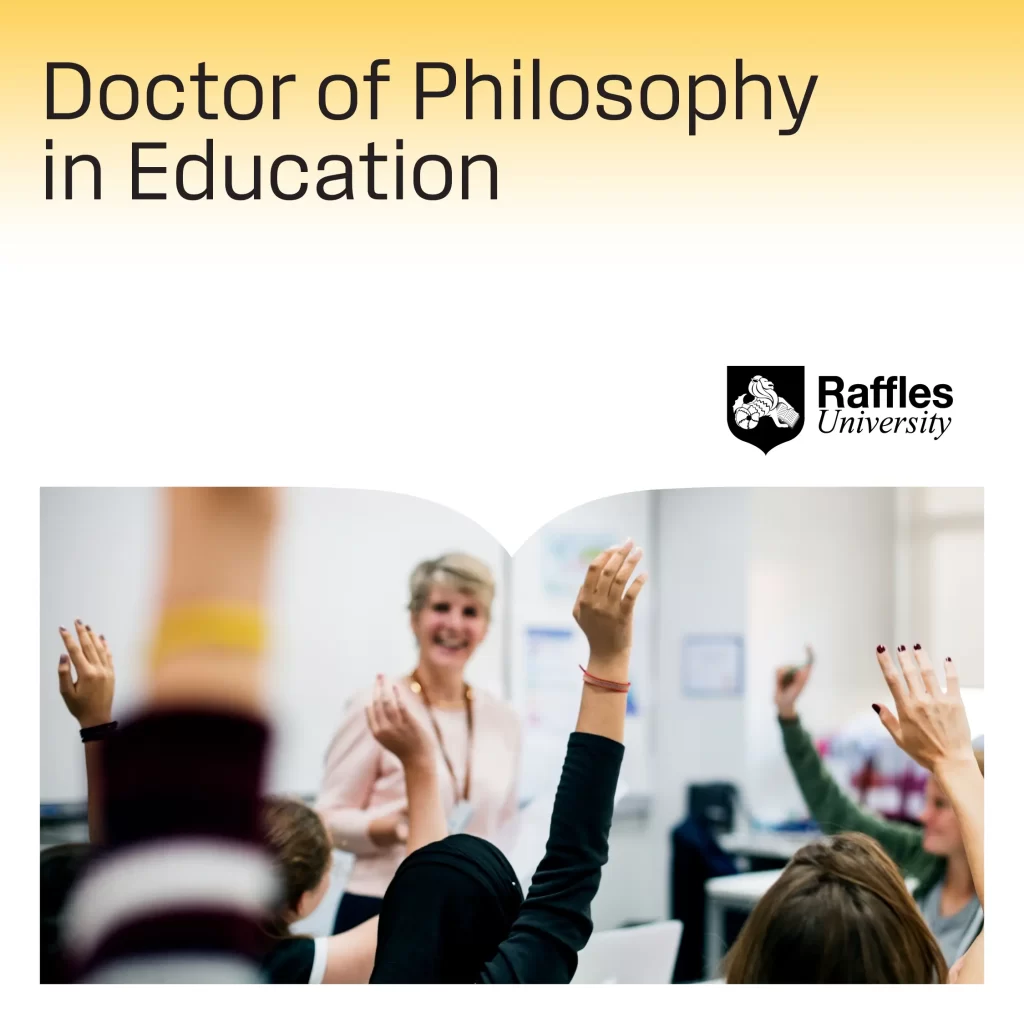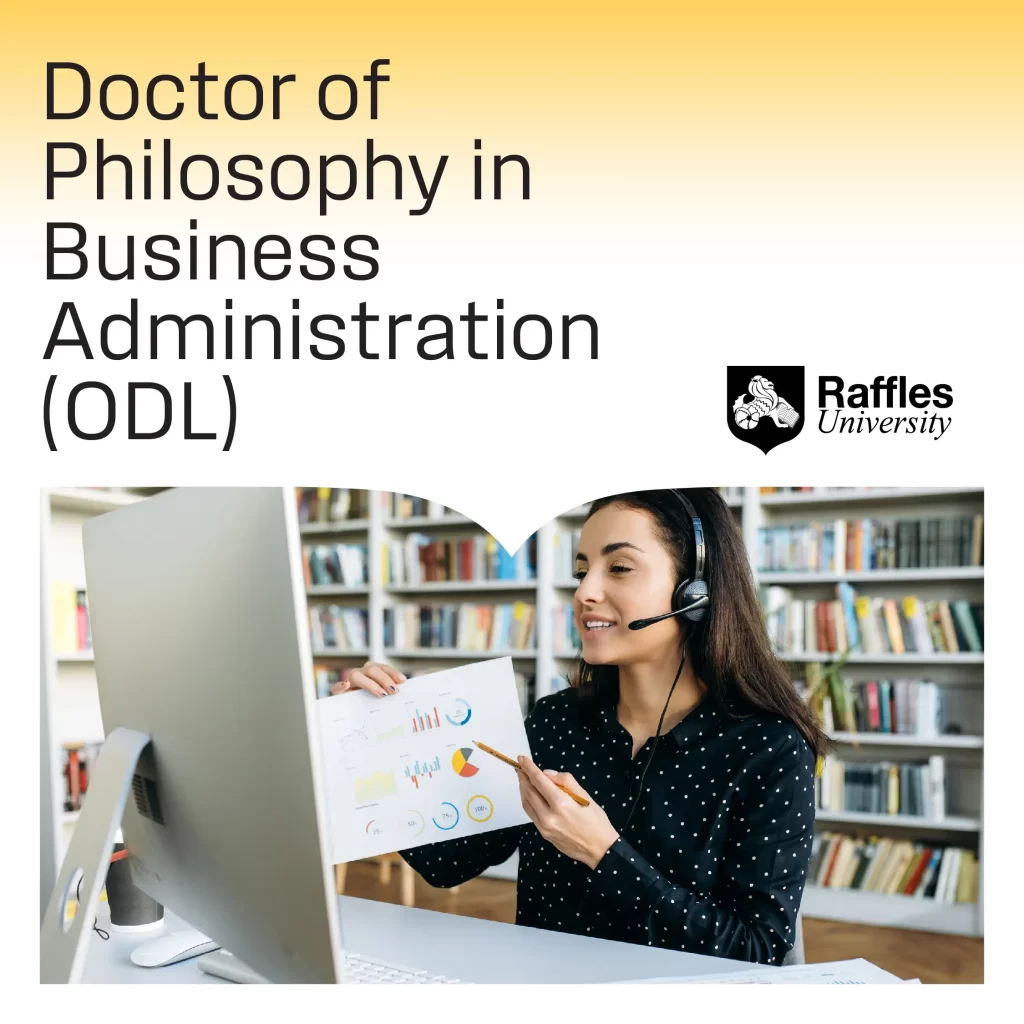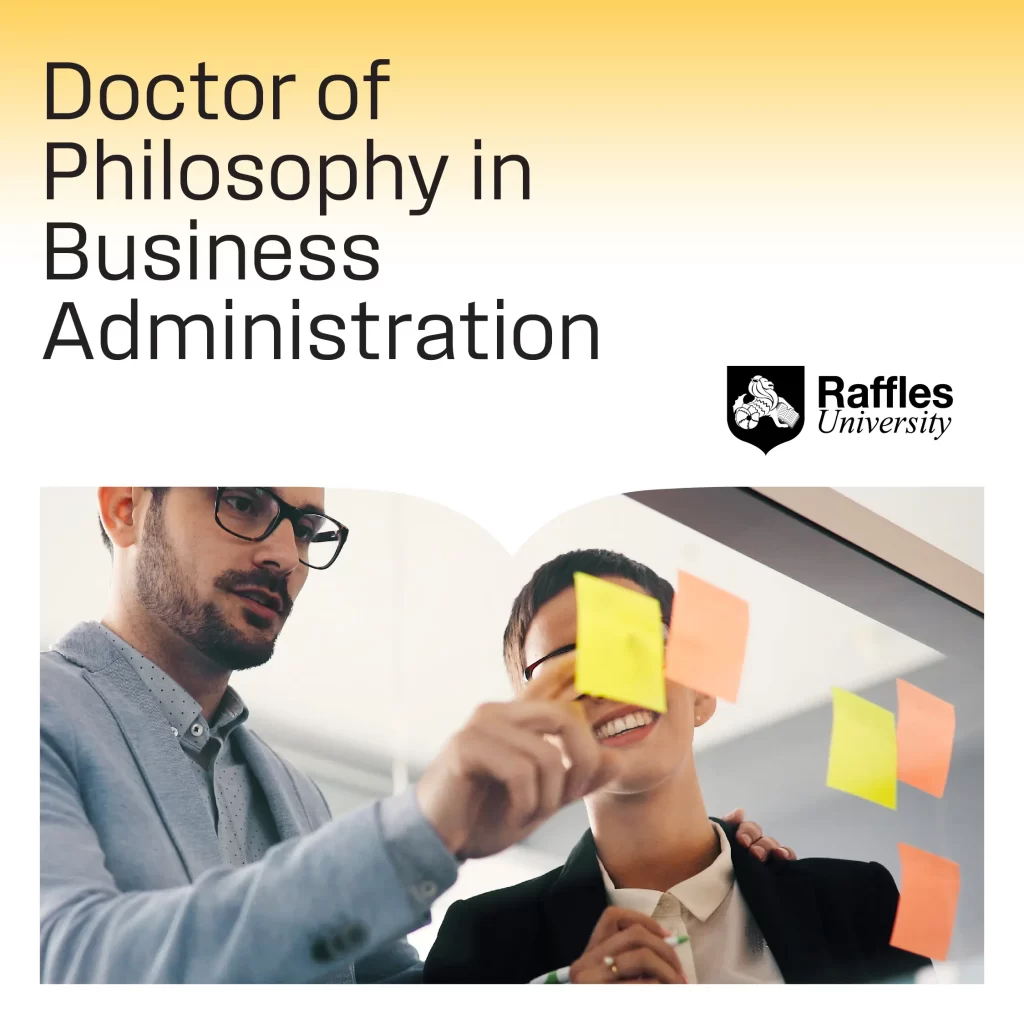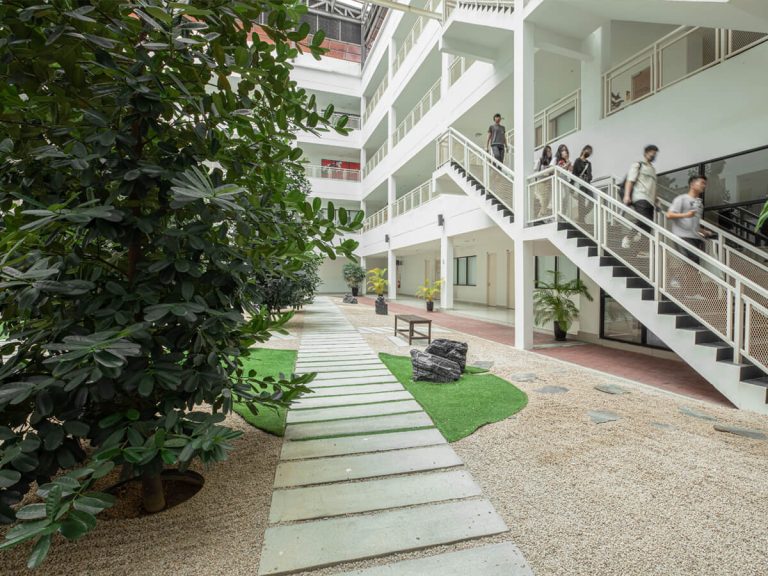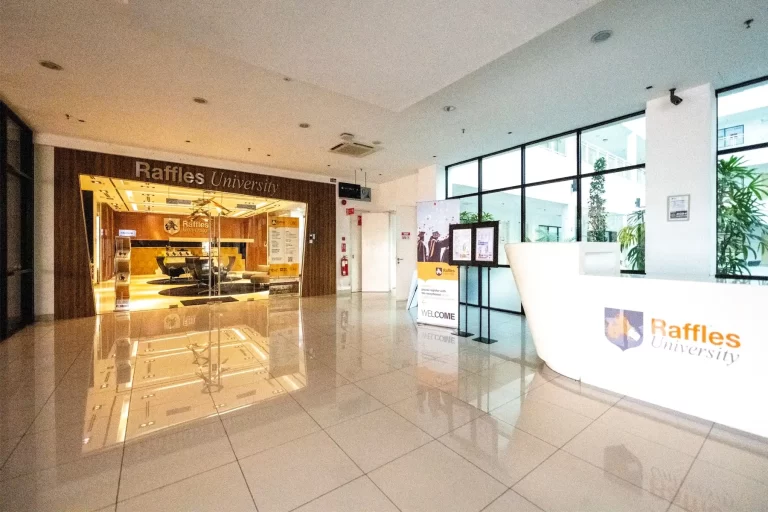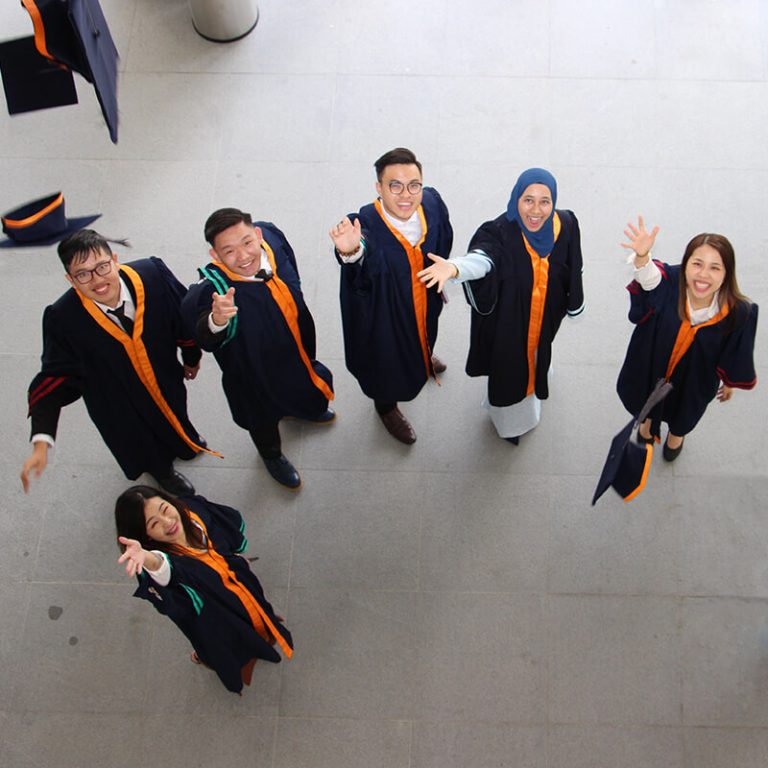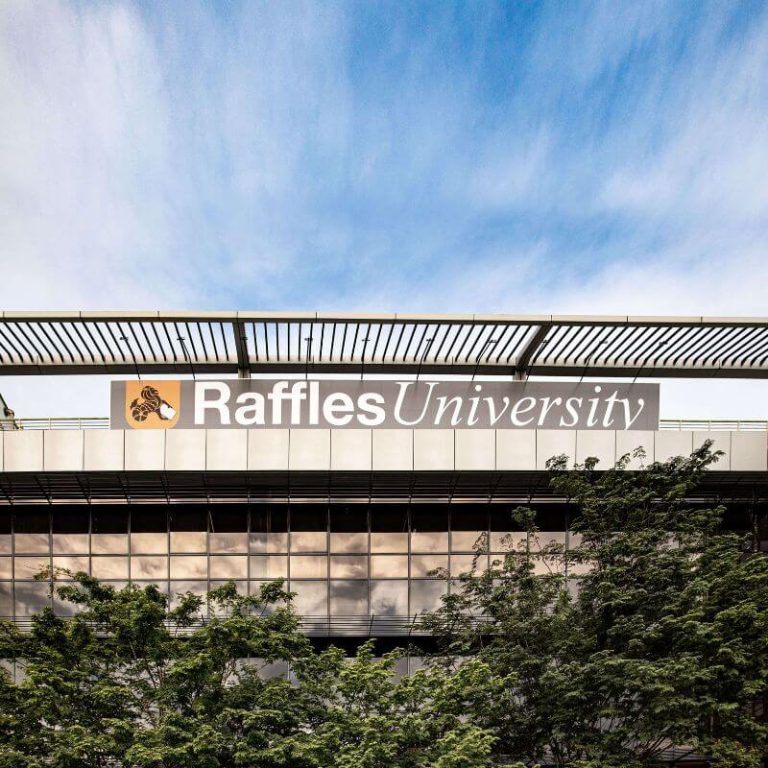POSTGRADUATE
Doctor of
Philosophy
in Business
Administration
Conventional
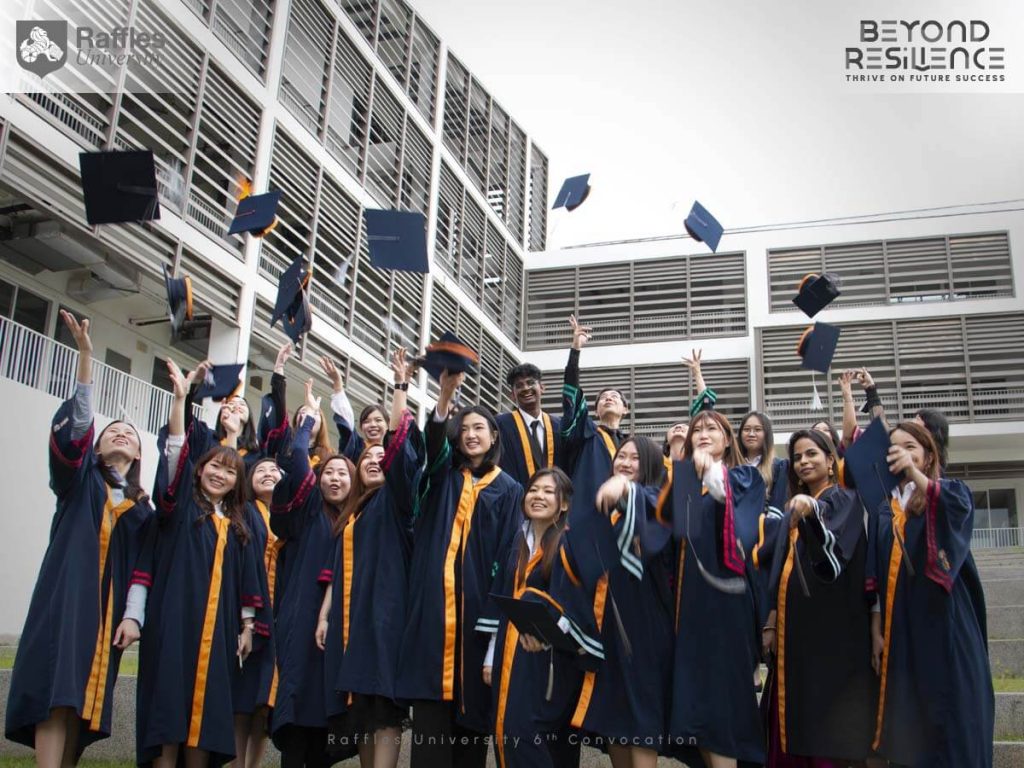
study pathway
Doctor of Philosophy in Business Administration
RU BACHELOR'S DEGREE PROGRAMME
3 Years
MASTER OF BUSINESS ADMINISTRATION
1 Year 4 Months / Part-Time
DOCTOR OF PHILOSOPHY IN BUSINESS ADMINISTRATION
3 - 6 Years / Part-Time
DOCTOR OF PHILOSOPHY
IN BUSINESS ADMINISTRATION (PBA)
MQA/FA 11782 | KPT/ N/345/8/1076 (10/2026)
Doctor of Philosophy in Business Administration is a full research programme that aims to provide students with rigorous, in-depth and advanced research knowledge within their specific areas of business administration. A key element of this programme is to understand the philosophy of science paradigms that determine methodological designs. It also aims to inculcate in them a systematic and ethical approach in conducting research in specialised areas, thereby contributing new insights to the body of knowledge and managerial practices.
By the end of the programme, students will have an integrated knowledge in the area of business administration and demonstrated ability to perform research activities independently. They will also be trained to analyse and evaluate complex management issues through independent research to improve organisational activities.
Programme Length:
3-6 Years (Full-Time) /
4-8 Years (Part-Time)
Programme Mode:
Research Mode
Programme Delivery Mode:
Conventional or Open Distance Learning
Intakes:
January / May / September
100% RESEARCH BASED
PRESENTATION SKILL
CHOOSE YOUR PREFERRED AREA OF DISSERTATION
CRITICAL THINKING
Career Opportunities
Doctor of Philosophy in Business Administration
– Academician
– Researcher
– Research Analyst
– Research Director
– CEO
– Management Analyst
– Lecturer
– Management Consultant / Trainer
Programme Modules
Doctor of Philosophy in Business Administration
| Modules | A PhD Process | Expectation in a PhD |
|---|---|---|
Year 1 – Year 3 | 1. Identifying Research Problems and Objectives | – Carry Out Research |
PEO 1: Can integrate knowledge in the area of business administration and demonstrated ability to perform research activities independently.
PEO 2: Can generate and develop new or altered knowledge through creative thinking.
PEO 3: Can analyse and evaluate complex management issues through independent research to improve organisational activities.
PEO 4: Have strong professional ethics and be able to communicate effectively with members of the relevant professional field.
*The programme module structure shown on this page is based on Intake A. The module is subject to change.
*The MPU Modules are translated to English. Please visit [here] for the original module name.
AREA OF DISSERTATION
| – Human Resource Management – Marketing | – Leadership – Organisational Behaviour | – Operation Management – Ethics |
If you are interested in other areas, please contact us to schedule a consultation with our programme director.
RESEARCHER PROFILE

PROFESSOR DR CHOI SANG LONG
– Human Resource Management
– Organisational Behaviour
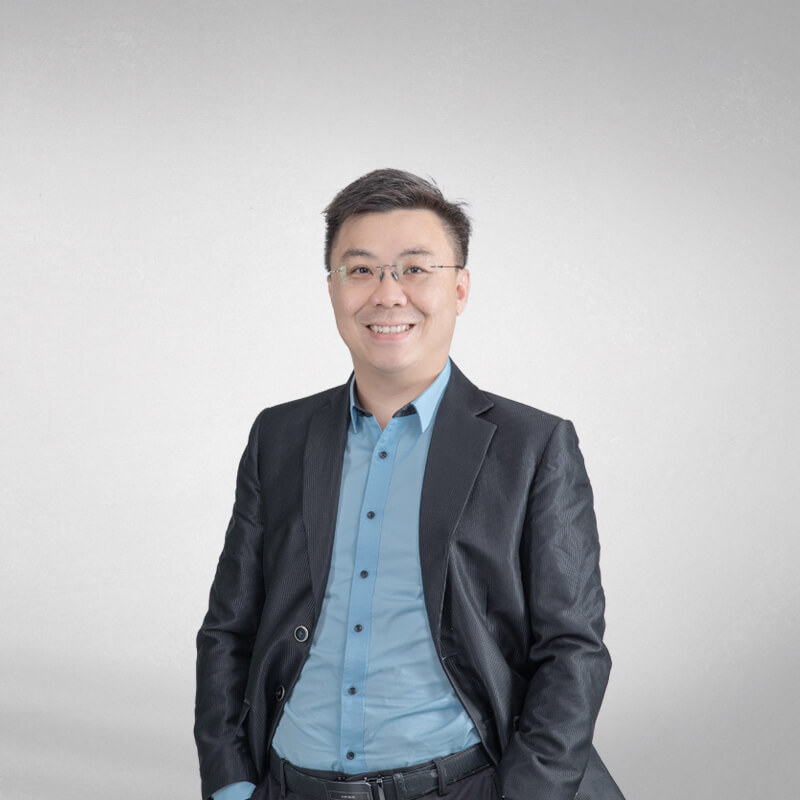
DR STEVEN TAN SHEN KIAN
– Organisational Behaviour
– Fourth Industrial Revolution
| Scopus | Google Scholar | Publons | ORCID | Research Gate |
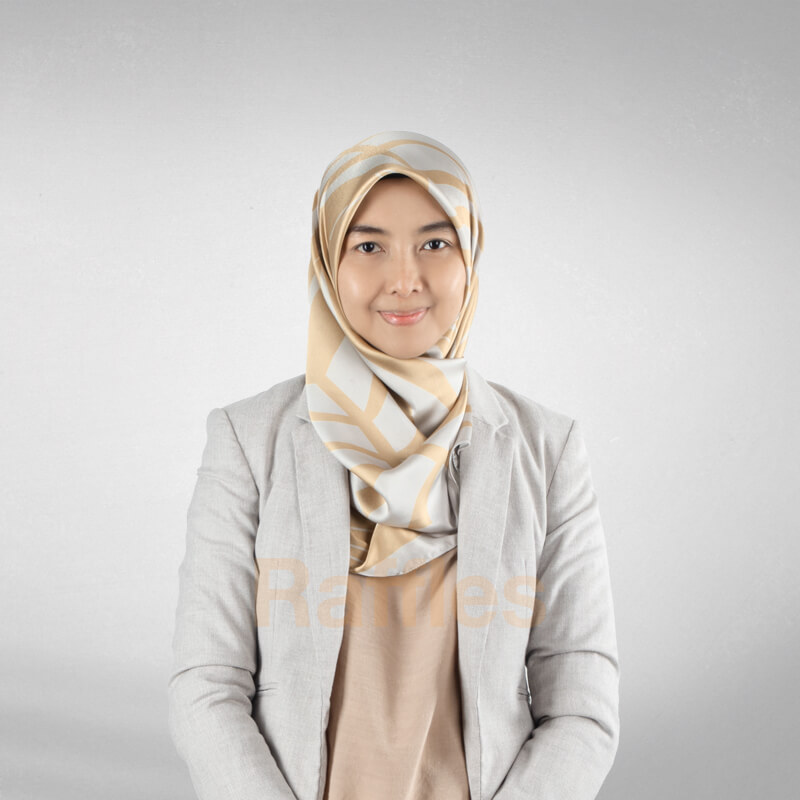
DR NADZIRAH BINTI ARIFAN
– Human Resource Practices
– Human Resource
– Organisational Behaviour
POSTGRADUATE SUPPORT
Learning Support Centre (LSC) /
Library
- Library Service
- E-Resource Workshop
- Book Collections
- Library Collections
- Digital Collection
- Digital Database
Centre of Professional Development (CPD)
- Networking & Industry Collaboration
- Commercialisation
- Industry Research
- Workshop & Seminar
- Short Training Course
- Career and Professional Development
Research Management Centre (RMC)
- Manage research project
- Research Grant for RU Academician and student
- Provide guideline and support in research publication
Centre for Innovative Teaching & Learning (CiTL)
- Open Distance Learning (ODL) Support
- ODL LMS Support
- Technology in Teaching & Learning
CONVENTIONAL VS ODL
| Conventional | ODL | |
| Study Mode | Full Time / Part Time | Full Time / Part Time available but Part Time is recommended for working adult |
| Mode of Delivery | Hybrid – Physical & Online Face-to Face | Semi Self-Paced Learning (Online facilitation) |
| Semester Mode | Conventional Semester Learning | Conventional Semester Learning |
| Class Schedule | Weekdays Evenings | Alternative Week Consultation |
| Class/ Consultation Duration | 3 hours conventional face-to-face class per module per week | 1.5 – 2 hours online face-to-face consultation per module fortnightly |
| Attendance Requirement | 80% / 90% physical attendance | 70% engagement |
| Mode of Examination | Physical Examination | Online Examination / Assignment |
| Access to Library & Resource | Yes | Yes |
| Blockchain Certificate | Yes | Yes |
| Assignment | Individual / Group | Mostly individual but depends on the requirement of modules |
| Fee | Scholarship available | Promotional Fee Available |
ADMISSION PROCESS
Prospective students are encouraged to contact Raffles University’s education consultants for expert advice on programmes, entry requirements, and scholarship opportunities. The consultants offer clear and personalised guidance, helping individuals navigate the admission process and explore financial support options.
Applicants must submit their highest academic qualifications and English language test results to fulfil the entry requirements. Depending on the programme, additional criteria such as a CV or interview may also be required. It is essential for applicants to carefully review the specific requirements for their chosen programme to ensure all necessary documents are submitted.
Applicants have the option to receive a Supporting Guidance on Writing an Effective Statement of Research Interest (SRI) as part of the admission process. This guidance offers guidance on creating a well-structured SRI that aligns with their academic goals. Additionally, it provides insight for both the applicants and the university, ensuring that the university’s resources and research direction are well-suited to the applicant’s interests.
The guidance may cover
- The structure and key components of a successful SRI.
- How to align research interests with the expertise of faculty members.
- Research design and feasibility.
- Examples of well-structured SRIs.
Once the Statement of Research Interest (SRI) is completed, applicants are required to submit it to the university. The university will then appoint a Faculty Evaluation Panel to review the SRI. This panel will carefully assess the applicant’s research interests, ensuring alignment with the university’s academic resources and research directions.
An interview will be conducted with the Faculty Evaluation Panel to provide constructive feedback on the applicant’s Statement of Research Interest (SRI). This interview offers a valuable opportunity for applicants to engage directly with faculty members, receive insights on their research interests, and discuss how they align with the university’s resources and objectives.
Accepted and Proceed to Admission with Adjustments: If the alignment and quality of the Statement of Research Interest (SRI) are moderate to strong, and the applicant demonstrates openness, the research can proceed with some adjustments.
Revise Research Topic and Resubmit SRI: If the alignment and quality of the SRI are below moderate and weak, but the applicant shows flexibility and commitment, revisions will be recommended to better fit the programme and faculty’s expertise. The applicant will need to resubmit the revised SRI for further evaluation.
Rejection and Alternative Programme: If there is no alignment and the quality of the SRI is weak, and the applicant refuses to adapt, guidance will be offered toward other programmes that may better suit their research interests. This ensures that the applicant can find a more suitable academic path.
RECENT PUBLICATION

Karen WONG Wee Fun
MBA (2017)
Being the leader of a sales team, I needed relevant knowledge to be able to lead and achieve our team’s targets. Although I have worked in this industry for a long time, higher qualification was necessary for me to move ahead in my career. I am glad to have met my lecturers and course mates whoo have guided me with their knowledge from working in their own industries.
Entry Requirements
Doctor of Philosophy in Business Administration
– A Master’s Degree (MQF Level 7) in related fields as accepted by the HEP Senate
– A Master’s Degree (MQF Level 7) in non-related fields as accepted by the HEP Senate, subject to having relevant working experience ***** and rigorous internal assessment ****
– A Master’s Degree (MQF Level 7) in non-related fields as accepted by the HEP Senate and without relevant working experience, subject to passing prerequisite courses ******
– Other qualifications equivalent to a Master’s degree (MQF Level 7) recognised by the Malaysian Government.
****
| Rigorous assessment to evaluate the suitability of an applicant for a programme through the statement of purpose, interview and other methods may cover the following criteria: (i) Demonstration of strong business experience, and that you have held significant managerial responsibilities. (ii) Evidence of any achievements in your professional life, for example, consistently performing at a high level, consistent career progression and any impact that you have had on your organisation. (iii) Professional skills that you have developed, for example, teamwork, leadership, problem-solving, negotiating, and analytical skills. (iv) How you will contribute to your class and what experiences you can bring to the institution. |
*****
| Experience can be cumulative experience even before acquiring the required qualification for a particular level of study. However, the experience must be relevant to the level of study as well as the content. Applicant to submit CV with details of: – Job description, roles & responsibilities/functions from each position held/holding from the working experience which are related to the content and level of study/program to enrol. – Tasks/ duties performed from the work experience |
******
| The pre-requisite courses must equip the students with necessary business knowledge (managing people, managing financial resources, understanding customers, understanding environments and strategic planning) of one level lower than the programme level. |
Malaysian Student
MALAYSIAN ENGLISH ENTRY REQUIREMENT
Completed a Master’s Degree in English
IELTS: 6.0
TOEFL: 550
TOEFL Essentials (Online): 8.5
TOEFL iBT: 60
PTE: 59
MUET: Band 4
Cambridge English / Linguaskill: 169
*Students who did not meet the English Requirement are required to enrol the RU English Preparation Programme (EPP) AND achieve the requirement of any equivalent English qualification.
Contact us to receive the latest information about the tuition fee.
Click here to check the available scholarship.
International Student
INTERNATIONAL STUDENT ENGLISH ENTRY REQUIREMENT
Completed a Master’s Degree in English
IELTS: 6.0
TOEFL: 550
TOEFL Essentials (Online): 8.5
TOEFL iBT: 60
PTE: 59
MUET: Band 4
Cambridge English / Linguaskill: 169
*International Students who did not meet the International English Requirement are required to enrol the RU English Preparation Programme (EPP) AND achieve the requirement of any equivalent English qualification.
Application Fee: RM4,500
Indicative Tuition Fee: RM60,500
Total Fee: RM65,000
(Approx. USD 15,500)
Contact us to receive the latest information about tuition fees.
Click here to check the available scholarships.
*The total fee will be subject to a 6% SST starting from 1st September 2025.
RELATED ARTICLES
- Blog
- News
- Events

Raffles Malaysia Fashion Show 2025: Celebrating Creativity
Raffles Malaysia Fashion Show 2025 showcased bold creativity from emerging designers of Raffles University and Raffles Kuala Lumpur.
Taspack Industry Field Trip
RU students visited Taspack Industrial Sdn. Bhd., one of the packaging solution companies in the region, for an immersive educational visit.
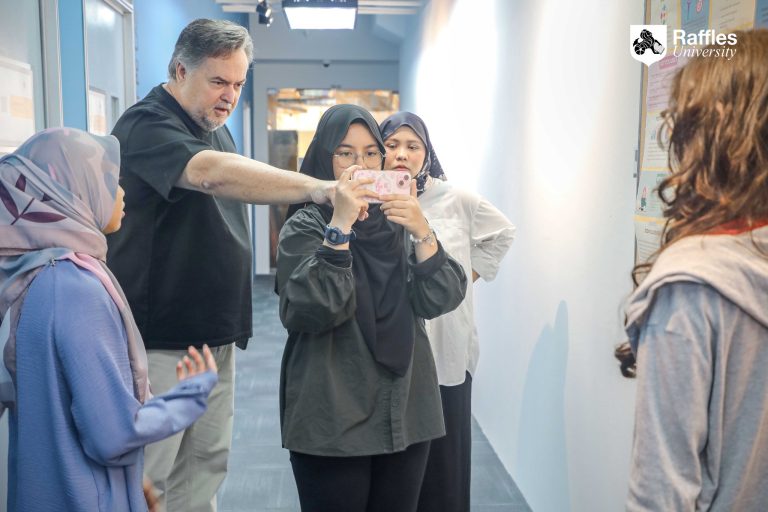
Make a Movie 3-Day Filming Workshop
Our 3-Day “Make a Movie” Workshop was a creative journey filled with learning, experimentation, and storytelling!
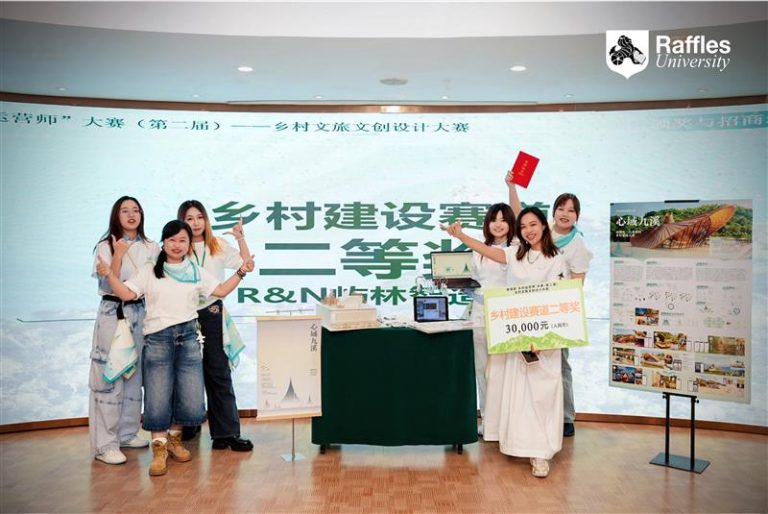
Awarded 2nd Prize at Nanao Village Rebranding Competition
RU was awarded 2nd Prize in the Nanao Village Rebranding Competition for its interdisciplinary project ‘心域九溪 JIUXI MINDSCAPE’.
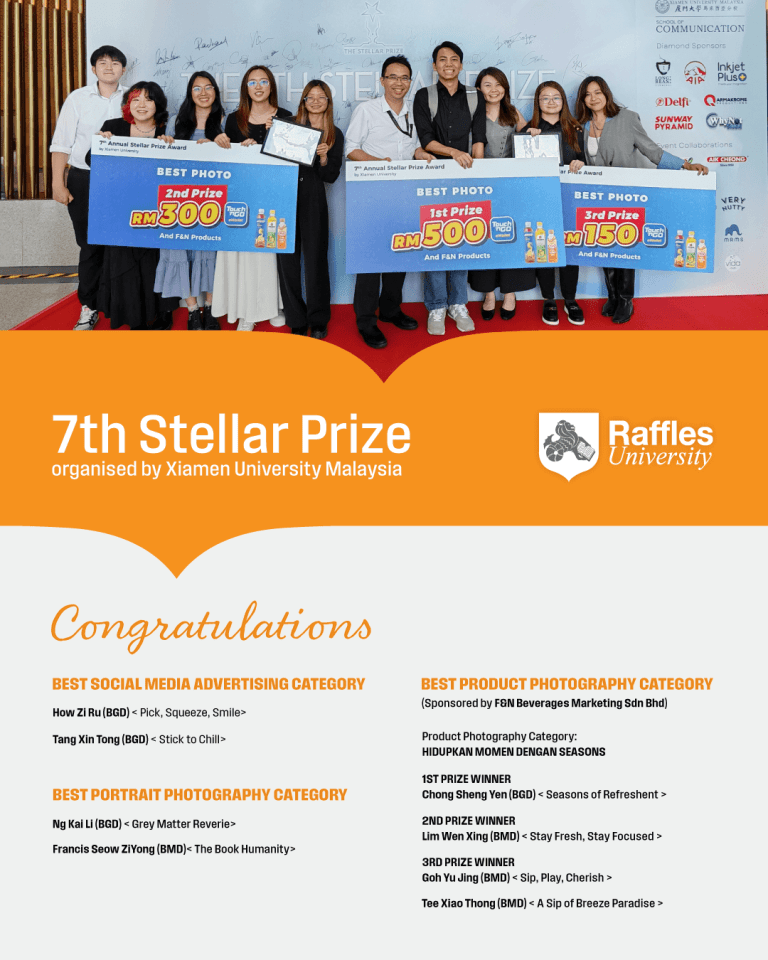
Shine at the 7th Stellar Prize Award Ceremony
Our Bachelor of Multimedia Design and Bachelor in Graphic Design students shine at the Stellar Prize Award Ceremony.
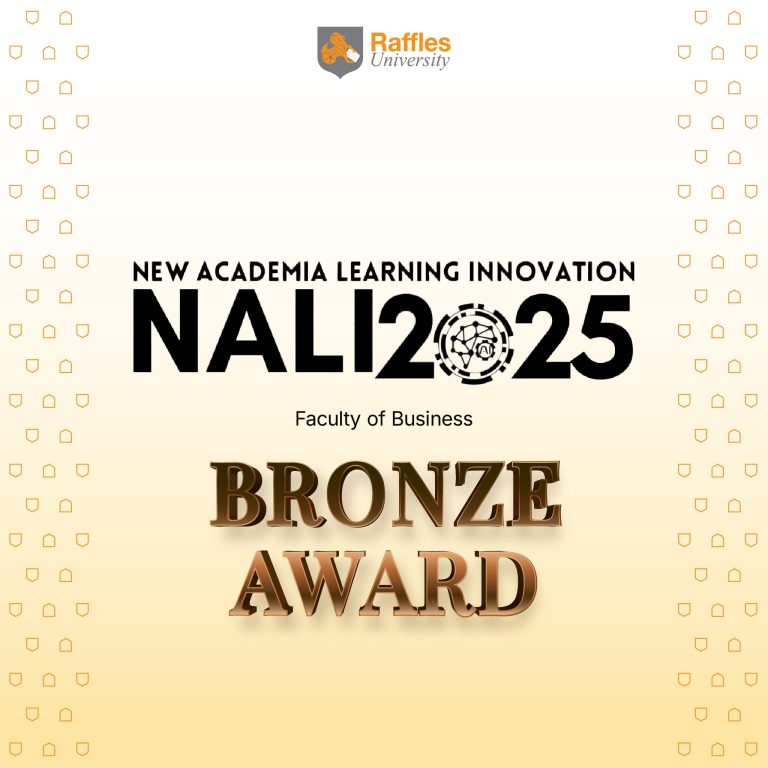
Bronze Award for IUCEL 2025
Dr Yang Chee Beng from Faculty of Business proudly achieved the Bronze Award for International University Carnival on E-Learning (IUCEL) 2025.

Raffles Malaysia Fashion Show 2025: Celebrating Creativity
Raffles Malaysia Fashion Show 2025 showcased bold creativity from emerging designers of Raffles University and Raffles Kuala Lumpur.
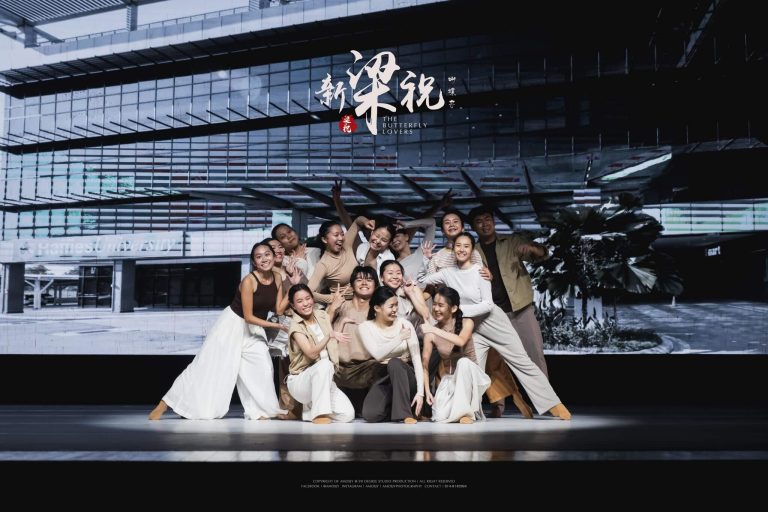
RU Designers Talent Powers at ‘The Butterfly Lovers’ Success
RU supports The Butterfly Lovers, showcasing student talent in fashion and multimedia on a professional stage.

Raffles Malaysia Fashion Show 2025: Celebrating Creativity
Raffles Malaysia Fashion Show 2025 showcased bold creativity from emerging designers of Raffles University and Raffles Kuala Lumpur.

